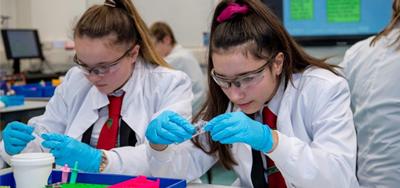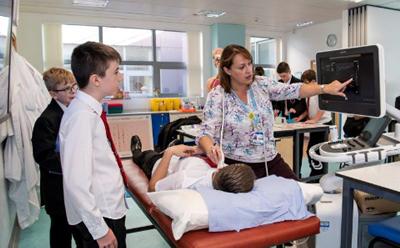Life lessons from LifeLab

Inspiring young people during the coronavirus pandemic
Empowering young people to make positive lifestyle choices has never been as important as it is now, in the midst of the COVID-19 pandemic. But do young people have a voice, and do they understand the choices they can make to mitigate the impact of the situation on their lives? The work of researchers in Southampton’s LifeLab has been to ensure that they do.
While the immediate impact of the coronavirus pandemic is being felt by everyone, the full impact may take years to be revealed. A whole generation of young people has been thrust into a situation many of them don’t understand. In such an uncertain environment they may feel ill-equipped to make the right lifestyle choices.
Dr Kathryn Woods-Townsend, who leads the LifeLab programme as a partnership between the University’s Southampton Education School and the Faculty of Medicine, explained:
“The LifeLab team has spent the past 12 years developing a programme aimed at increasing scientific and health literacy among young people through raising awareness of the underlying science. We hope to inspire positive health-related lifestyle and behaviour changes by the LifeLab experience outside the school environment.”
The emergence of COVID-19 immediately got us thinking about what support young people need to face this new challenge, and how best we could get it to them in a locked-down society.

The LifeLab team worked with Professor Mary Barker and colleagues in the Faculty of Medicine to develop the Teenagers’ Experience of COVID-19 (TeC-19) study, funded by the Institute for Life Sciences. The study involved online focus group discussions with teenagers to ask about their experiences of the pandemic.
Read the full story in Re:action, the University’s research and enterprise magazine.
Related Staff Member
Related Staff Member
You may be interested in:

Teenagers: the next generation of parents
How we can use education to transform theirs and their future family’s health

Breaking down language barriers
Exploring ways to help primary schools improve foreign language teaching practices

